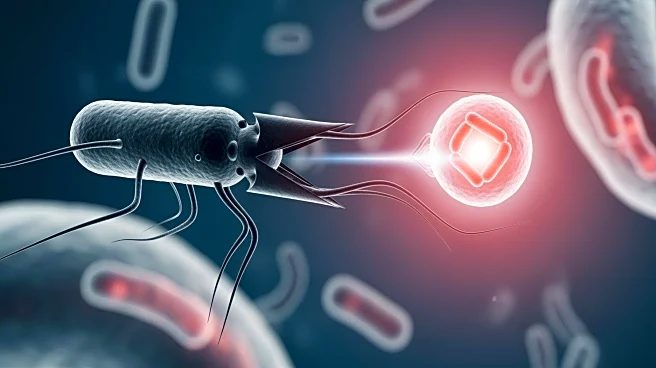What's Happening?
A study published in Nature explores the predatory behavior of Bdellovibrio bacteriovorus, a bacterium known for its ability to prey on other bacteria. Researchers conducted a quantitative proteome analysis
to identify proteins involved in the predatory life cycle of B. bacteriovorus. The study highlights the discovery of a prey-lytic protease, Bd2269, which plays a crucial role in the bacterium's ability to lyse prey cells. The research involved culturing B. bacteriovorus with E. coli prey and analyzing protein expression at various stages of predation.
Why It's Important?
Understanding the predatory mechanisms of Bdellovibrio bacteriovorus has significant implications for biotechnology and medicine. The bacterium's ability to target and lyse harmful bacteria presents potential applications in developing new antibacterial treatments. The identification of prey-lytic proteases could lead to innovative approaches to combat antibiotic-resistant bacterial infections. Additionally, the study contributes to the broader understanding of bacterial interactions and the ecological role of predatory bacteria in microbial communities.
What's Next?
Future research may focus on further characterizing the prey-lytic protease Bd2269 and exploring its potential applications in antibacterial therapies. Scientists may investigate the genetic and environmental factors influencing the expression of predatory proteins in B. bacteriovorus. The study opens avenues for developing biotechnological tools that harness the bacterium's predatory capabilities to address public health challenges related to antibiotic resistance.
Beyond the Headlines
The study of Bdellovibrio bacteriovorus highlights the complexity of bacterial ecosystems and the evolutionary adaptations that enable predation. It raises questions about the ethical considerations of using predatory bacteria in medical applications, particularly regarding safety and ecological impact. The research underscores the importance of interdisciplinary approaches in microbiology, combining proteomics, genetics, and ecology to advance scientific knowledge.









